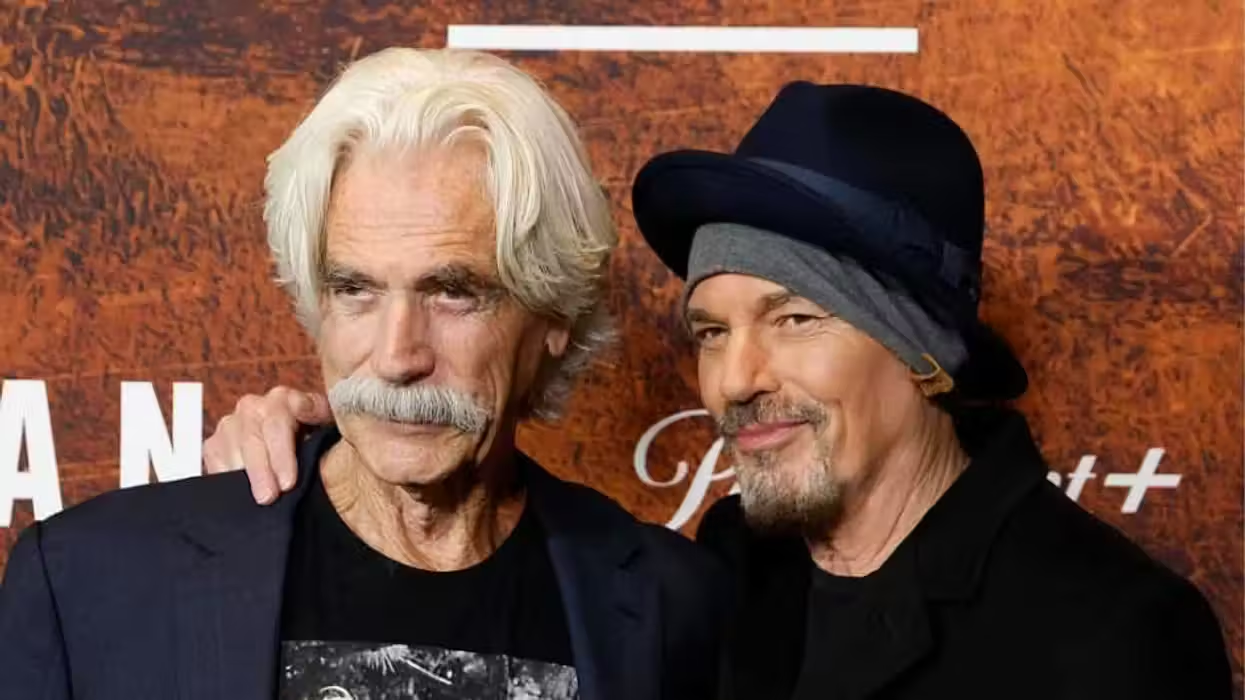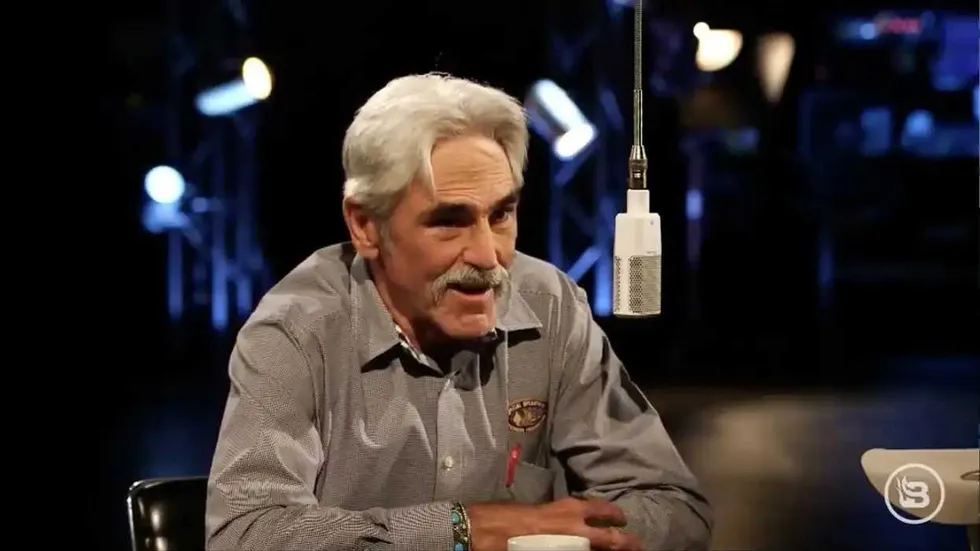
Taylor Hill/Getty Images

Season 2 of Taylor Sheridan's hit hearkens back to the glory days of 'peak TV.'
The days of "The Wire," "The Sopranos," "Boardwalk Empire," "Breaking Bad," and "Better Call Saul" are gone. And they're never coming back.
Instead of quality TV, we get a stream of shallow muck that insults our intelligence and wastes our time. Seth Rogen peddling the same stale stoner humor for the thousandth time. Pedro Pascal starring in a dystopian video-game adaptation so obsessed with gay "representation" that it might as well list Grindr as a co-producer.
Sheridan shows a country held together by early mornings, long shifts, and people who take pride in work most citizens rarely notice.
Then, just as you’re about to suffocate in the hothouse atmosphere of algorithm-driven fake-prestige TV, one show comes stomping in with a pair of steel-toed boots and kicks the door off its hinges. Fresh air floods the place — enough that something real might actually grow again. That show is "Landman."
Forget "shame"; it's time to drill, baby, drill. Taylor Sheridan's hit is back for season 2, with the TV auteur once again proving that he is one of the few people in Hollywood who actually understands the America he is depicting. Many viewers know him from "Yellowstone," the rare modern hit that refused to treat ranchers the way Hollywood treats anyone who still works with their hands. Where executive elites see deplorables, he sees Americans with stories worth telling.
Sheridan brings that same respect to "Landman." He writes ordinary Americans with dignity rather than derision. He shows them as they are: hardworking, flawed, loyal, funny, and strong enough to carry a story on their backs. "Landman" is no cheap cousin of "Yellowstone." It stands tall: lean, mean, focused, and built with the same skill that made Sheridan’s early work impossible to ignore.
The show moves effortlessly between blue-collar reality and white-collar brutality, revealing the canyon between those who pull the oil from the ground and those who profit from it. There’s a real honesty to that contrast. Sheridan knows this world, and it shows. You feel it in every shot of the Permian Basin. You hear it in the blunt, believable way his characters speak.
And then there’s Billy Bob Thornton. One of America’s finest actors, doing his best work since he stole "Fargo" as a soft-spoken psychopath who could change the temperature of a room with a single line. As Tommy Norris, a ruthless oilman, he brings back that same menace, just a little more restrained. He’s the perfect Sheridan creation: bruised, stubborn, quick to size people up, and capable of cruelty when pushed.
Season 1 worked best when it put Norris at the center and let everything else orbit around him. The very first scene of the very first episode sets the tone. Norris, blindfolded in a room with a cartel heavy, cracks a dry line about how they both traffic in addictive products. His just happens to make more money. It’s a joke with teeth. Sheridan doesn’t shy away from the darker corners of the oil world, the places where danger, deceit, and obscene wealth share the same bed.
Norris once ran his own outfit. Now he’s a fixer for M-Tex Oil, answering to Monty Miller, a billionaire played by Jon Hamm of "Mad Men" fame. Hamm leans into one of the last great “man’s man” roles on TV. He moves through marble corridors and executive suites with the relaxed confidence of a man who has never had to fight for a parking space or a paycheck.
Norris gets the other Texas. The asylum-adjacent McMansion he shares with co-workers. The long, unforgiving drives that eat up whole days. And the late-night waffle joints where truckers, rig hands, and the down-and-outs swallow bad coffee and brood over worse decisions.
Sheridan shows a country held together by early mornings, long shifts, and people who take pride in work most citizens rarely notice. He zooms in on communities where faith still shapes daily life, where people curse when they have to, where men bow their heads before a meal and chew tobacco like there’s no tomorrow.
For conservatives, and especially for Christians who are tired of being reduced to stereotypes, "Landman" feels recognizably real. Season 1 had its flaws, including a few moments that leaned too hard into climate panic, but it never lost sight of what matters: good storytelling built on real characters and real consequences.
RELATED: 'Yellowstone' actor Forrie J. Smith on why America needs to rediscover its cowboy culture

And yes, the progressive pearl-clutchers will claim "Landman" has a “woman problem,” the same complaint they threw at "Yellowstone." They insist that Sheridan sidelines women or turns them into cardboard cutouts.
The truth is far less dramatic. Both ranching and the oil fields are worlds dominated by men, and Sheridan writes them as they actually are, not as activists wish them to be. That’s not misogyny, but an accurate reflection of the reality millions of Americans live every day. Sure, some female characters could use more lines, but that hardly damages the show. It simply acknowledges that in these worlds, the danger, the decisions, and the dirty work fall mostly on men.
"Landman" also has something most modern shows forget: a genuine sense of place. Not the packaged Americana you see on postcards, but the West Texas that actually exists, where the heat melts your mind and vacation time is something you hear about, not something you get.
Season 2 promises to go deeper — underground for the oil and under the skin of the people who pull it out. More tension between the barons and the boys in the mud. More of Thornton’s world-weary wit. And more of what Sheridan does better than anyone around: crafting TV that wouldn’t look out of place beside the giants of the late 1990s and early 2000s.
If "Yellowstone" was Sheridan’s hymn to the American ranch, "Landman" is his sermon on the American worker. In an age of narrative nothingness, something on TV finally feels worth watching.
John Mac Ghlionn
Contributor